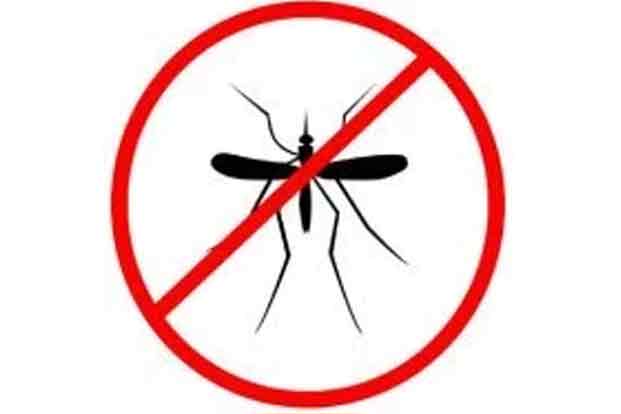Categories
- Bariatric Surgery (11)
- Black Fungus (5)
- Bone Marrow transplant (3)
- Brain Tumor Surgery Navigation Technology (20)
- Cardiac Surgery (66)
- Cardiology (97)
- Computer navigation technology for joint replacements (20)
- Covid Vaccination (17)
- Critical Care (2)
- Dental (19)
- Dermatology (31)
- Dialysis Support Group - “UTSAAH” (11)
- Dietitian (33)
- Emergency Medicine (4)
- Emotional Health (11)
- Endocrinology (33)
- ENT (20)
- Gastroenterology and GI Surgery (53)
- General and Laparoscopic Surgery (21)
- General Surgery (4)
- Gynecology & Obstetrics (183)
- Hematology (20)
- Internal Medicine (294)
- Kidney Transplant (50)
- Kidney Transplantation (20)
- Lung Cancer (8)
- Minimal Invasive Surgery (1)
- Mother & Child (20)
- mucormycosis (5)
- Nephrology (61)
- Neurology (147)
- Neurosurgery (68)
- Nutrition and Dietetics (107)
- Omicron Variant (1)
- Oncology (288)
- Ophthalmology (10)
- Orthopaedics & Joint Replacement (86)
- Paediatrics (59)
- Pediatric Nephrology (3)
- Physiotherapy (5)
- Plastic & Reconstructive Surgery (6)
- Psychiatry and Psychology (90)
- Psychologist (28)
- Pulmonology (72)
- Rheumatology (13)
- Spine Services (21)
- Transradial Angioplasty (16)
- Urology (84)
Query Form
Posted on Apr 19, 2022
Malaria During Pregnancy
Malaria infection in pregnancy is a noticeable public health issue that requires multidimensional and multidisciplinary solutions. Pregnancy and malaria are both mutually aggravating situations. The physiological transformations during pregnancy and pathological transformations because of malaria have a combined effect onto the progression of each other, hence making life of the mother difficult and also of the child along with the physician who is treating. P. falciparum malaria may run a dramatic and turbulent course within pregnant ladies. The primi gravidae, non- immune are generally the highest affected. In pregnant ladies the illness because of malaria involves anaemia, hypoglycaemia, fever illness, pulmonary edema, cerebral malaria, puerperal sepsis and also mortality may occur due to haemorrhage and severe malaria. The issues in new-borns comprise of lower birth weight, IUGR, malaria illness, prematurity and mortality.

Malaria during Pregnancy : How is it different in comparison with general population
- More common – Because of immunosuppression
- More atypicalin its presentation – This may be becayse of the hormonal, hematological and immunological changes during pregnancy.
- More fatal and more severe – Because of high prasitaemia
- Treatment can become tough – This is because few anti malarials are contra indicated during pregnancy and few may lead to highly adverse effects
- Management of complications posed by malaria may be tough– This is because of several physiological transformations during pregnancy. Careful observation has to be made into fluid management and temperature monitoring, etc. Decisions about induction of labour can be tough and complex also. Foetal loss, premature labour and IUGR are common.
- Atypical appearances of malaria– Symptoms like fever, anaemia, splenomegaly, acute pulmonary edema, etc, are seen.
Problems of Malaria during Pregnancy:
- Anaemia Anaemia because of malaria is more severe and common from 16-29 weeks. Pre-existing iron along with folate deficiency can worsen the anaemia of malaria and vice versa. Anaemia raises perinatal mortality, maternal morbidity and also mortality. It also raises the danger of pulmonary oedema. Danger of post-partum haemorrhage is higher too.
- Acute pulmonary oedema:It is also a very common problem of malaria during pregnancy in comparison with non-pregnant populace. It is very common in 2ndand in 3rd It may develop unexpectedly in instant post-partum time because of auto transfusion of the placental blood with a high proportion of the parasitized RBC’s and also sudden rise in the peripheral vascular conflict post delivery. It is worsened by pre-existing anaemia and also hemodynamic transformations in pregnancy. Acute pulmonary oedema comprises of a very high rate of mortality.
- Risks for foetus: Malaria during pregnancy is harmful to foetus. Both falciparum malaria and P. vivax can cause issues to the foetus, especially the latter being comparatively more serious. Spontaneous abortion, still birth, pre mature birth, placental insufficiency & IUGR (chronic / temporary), low birth weight, foetal distress is different issues observed in a growing foetus. The Transplacental spread of infection into the foetus can lead to congenital malaria.
Malaria Management during Pregnancy:
It comprises the following 3 aspects:
- Treatment – treatment of malaria during pregnancy must be anticipatory, energetic, and very careful.
Anti malarials during pregnancy:
All trimesters: Quinine; Chloroquine; Artesunate / Arteether /Artemether 2nd trimester: Pyrimethamine; Mefloquine / sulfadoxine
3rd trimester: Mefloquine; Pyrimethamine / sulfadoxine
Contra indicated: Tetracycline; Primaquine; Halofantrine; Doxycycline
Malaria Prevention in pregnancy:
WHO recommends the below:
- Usage of LLINs or long-lasting insecticidal nets;
- In all regions with moderate or high malaria transmission within Africa, Intermittent preventive treatment in pregnancy (IPTp) with sulfadoxine-pyrimethamine (SP), as a part of the antenatal care services
However, in India, LLIN is unavailable widely across public health system and SP-IPT is inappropriate as epidemiology is different within India. Also resistance is found to SP in north eastern provinces of India.



